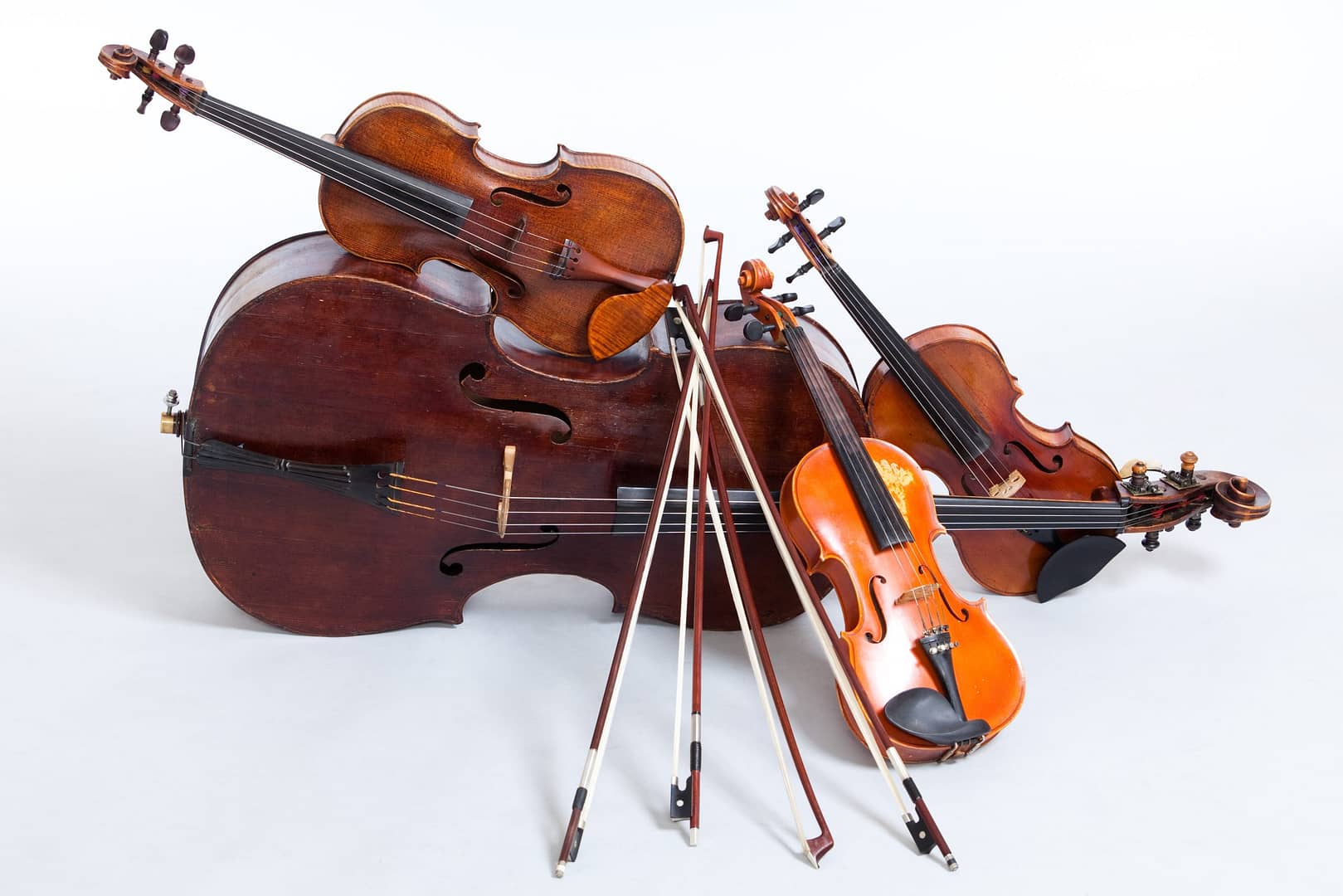I

Cello and three violins, all vintage instruments.
f your spring season is anything like most, then you are finally sitting down to read this article after your spring slate of concerts, wondering if there is a way to double up your time and have the students help you with assessing summer cleaning and repair needs. All students should know what to look for when an instrument needs some attention and/or repair. Often small things students notice when they are taught properly saves the “broken instrument eruption” later. I find the last couple of days before the end of the school year are perfect for this when the students want to do something different, and you can make it fun by listening to fun music and having various “inspection stations” etc. I will go over what it is appropriate for each level of student to help with. That way, the jobs change as they get older.
Your first-year players can be great at diagnosing body cracks or open seams. This is a great way to work in some instrument part review. They can give you a status report on their instrument (or with cello/bass, their school instrument) and say things like, “I noticed a crack in the middle of the back of the instrument that you need to look at.” The initial wipe down of their instruments can be done with or without polish at your discretion. They are good at noticing if there is extra wear on the strings indicating the strings might need changing. If they rent their instrument, you could come up with a form to take home to their parent that you sign off on with things the shop should look at over the summer, or if the student needs a different size. Make it fun with different stations around the room, and have the students help each other.
Your second and third year players are good with the first year activities, particularly for the self-owned or rented instruments, but I would have them look at the bows more closely; teach them how to look for tightening and loosening problems and an appropriate amount of clean hair. You could have them sort the school bows by size and condition, making it easier for you to assess your needs. These students could be trusted to work with polish and other cleaners, and with bass and cello strings to teach them how to use some steel wool to help clean off the particularly stubborn bass rosin. This group can also help with more basic inventory such as counting rosin blocks.
High school players should know what cleaners and polish to use in which situation, plus if a younger student flags an instrument for repair, you could have them assess how badly that repair is needed. Is it a repair you would attempt yourself? Is it something that should go to the shop? I have also had older students take a bin of endpin screws and figure out if a stripped screw can be replaced from our supply. Older students also can help with more detailed inventory work, with school instruments and, given the clear criteria, they can rate instruments using a color code or rubric. Particularly advanced and interested students can be coached on changing strings, particularly for school instruments.
Having the students help you get a jump start on your summer repairs can save you time, and really have other sets of eyes on your school fleet. Students who play an instrument every day usually will know when there is something wrong, and the more you teach them what to look for, the sooner repairs can be made.
Lesley Schultz currently teaches secondary general music and orchestra at Princeton City Schools (Cincinnati, OH). She earned her Baccalaureate degree in Music Education from West Virginia University and her Master of Music Education degree from Ohio University. Lesley is a Level 2 Google Certified Educator. Lesley keeps an active performing schedule around the state of Ohio, performing with several regional symphonies on viola. She is a member of TI:ME (Technology In Music Education) and serves as the Ohio Chapter President and on the National Conference Committee. Lesley is a columnist for SBO Magazine. Currently she is relearning how to walk! In her copious amounts of spare time, she enjoys knitting, watching West Virginia Mountaineer sports and spending time with her family, and making TikToks about her cats.








